Review| Logan
 Seventeen years portraying the same character can wear on a person. We’ve heard rumblings from some of the Marvel actors that they’re ready to move on from their iconic roles, and that has been just ten years or less. 2017’s Logan is Hugh Jackman’s 9th film since 2000 in which he reprises the role of Wolverine. Granted, 3 of those were very minor appearances, but they all require Jackman to adapt to a certain attitude and on screen presence. He seems to be made to embody the clawed anti-hero, and his grand finale in Logan is proof-positive that we may have just witnessed the most perfect pairing of actor to fictional character in a generation.
Seventeen years portraying the same character can wear on a person. We’ve heard rumblings from some of the Marvel actors that they’re ready to move on from their iconic roles, and that has been just ten years or less. 2017’s Logan is Hugh Jackman’s 9th film since 2000 in which he reprises the role of Wolverine. Granted, 3 of those were very minor appearances, but they all require Jackman to adapt to a certain attitude and on screen presence. He seems to be made to embody the clawed anti-hero, and his grand finale in Logan is proof-positive that we may have just witnessed the most perfect pairing of actor to fictional character in a generation.
James Mangold (The Wolverine, Walk the Line) co-writes and directs this story of an older, world-wearied Logan in the year 2029 who has willfully reserved himself to the role of chauffeur of anyone who will hire him, and caretaker for Charles Xavier (Patrick Stewart). These roles he has reserved himself to are in themselves literal inverses of where we first met Wolverine. He was a carefree individual who would sooner fight someone than go where they tell him. Now he relies on the direction of others to guide his path for a livelihood. He was one who relied on the care and compassion of Charles Xavier and others to nurse him to health and give him purpose. Now he provides the care for Charles and protects him from those who might use Charles’ state of dementia and powers over the mind for their own selfish purposes. These are just two of the many ways in which Logan brings us full circle in the life of Wolverine.
 Logan operates in a sort of dystopian future, at least for mutants. The kind that was always threatened in past X-Men films. There are veiled, somewhat tragic or quiet references to prior X-Men, but they’re all just gone. This seems to be the case for all mutants, save for Logan and Charles, and their power-sensing friend Caliban, whom you’ll remember was employing Psylocke before Apocalypse nabbed her in 2016’s X-Men: Apocalypse. These three seem reserved to the notion of going along with life and continuing to hide their abilities or identity until they all expire. Until Charles begins to sense and speak to another mutant. Before long a woman comes to Logan seeking help from the now infamous Wolverine who fights for the helpless, or so she learned from the many comics in circulation telling of the X-Men and their adventures. She is transporting a young girl named Laura, a refugee mutant, seeking asylum in Canada. Charles encourages Logan to take on this task. “She’s like you, very much like you”, he tells Logan. As it turns out she has regenerative powers, adamantium claws, and is a fearless fighter. Oh, and turns out to be Logan’s daughter through genetic experimentation.
Logan operates in a sort of dystopian future, at least for mutants. The kind that was always threatened in past X-Men films. There are veiled, somewhat tragic or quiet references to prior X-Men, but they’re all just gone. This seems to be the case for all mutants, save for Logan and Charles, and their power-sensing friend Caliban, whom you’ll remember was employing Psylocke before Apocalypse nabbed her in 2016’s X-Men: Apocalypse. These three seem reserved to the notion of going along with life and continuing to hide their abilities or identity until they all expire. Until Charles begins to sense and speak to another mutant. Before long a woman comes to Logan seeking help from the now infamous Wolverine who fights for the helpless, or so she learned from the many comics in circulation telling of the X-Men and their adventures. She is transporting a young girl named Laura, a refugee mutant, seeking asylum in Canada. Charles encourages Logan to take on this task. “She’s like you, very much like you”, he tells Logan. As it turns out she has regenerative powers, adamantium claws, and is a fearless fighter. Oh, and turns out to be Logan’s daughter through genetic experimentation.
Laura is a naturally born mutant with regenerative powers whom Dr. Rice, apparently William Stryker’s son, inserted adamantium into just as Logan had done to him ages ago. She was given the code name X-23 and grouped with other child mutants who were undergoing similar experiments in order to become super-soldiers. It was believed that children could be raised to obey orders. When these children escaped the lab through the benevolence of some employees (who all appeared to be of Hispanic ethnicity), they all became refuges trying to escape to Canada, where they cannot be hunted down. I think you can see, given the current climate of our nation, where the parallels can be drawn to liken this to social issues we face today. This wouldn’t be the first time a film in the X-Men franchise struck significant parallels to a current day social issue. Both X-Men (2000) and X2 (2003) were used heavily as parables for the fight for legal same-sex marriage in the early 2000’s. This film would be an easy one to use to drum up emotional support for refugees in today’s climate. But, I think there is an issue it touches on that runs deeper; fatherhood.
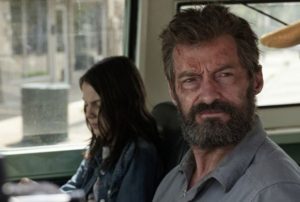 I talk a lot online with Logan Judy at Christian Entertainment Reviews and he highlighted for me something that I noticed, but hadn’t realized was touched on with such depth in this film. He speaks of it in his review, but all the lines typical of absentee fathers are there; “you’re better off without me”, “I suck at this”, “I didn’t ask for this”. Logan’s case is not a typical one since he actually did nothing to result in having a child, but his treatment of Laura is emblematic of how so many men today treat their own children; they’re an inconvenience and just something to “deal with”. As of 2014, nearly ¼ of children in the U.S. live in fatherless homes. This factors into a host of other social problems in the children ranging from poverty and alcohol abuse, to heightened aggressive behavior. Now, of course, not just any man in the house fixes these issues. It isn’t merely male-ness that is missing, but the direction and instruction that fathers specifically pass on to their children. Things like chivalry and bravery that carry more weight when explained and exemplified in a father. How showing kindness can be a sign of strength. How appropriate discipline is an expression of love. And most importantly raising the children “…in the training and instruction of the Lord.” (Eph. 6:4). This verse carries with it the weight of all the lessons and principles of life on which the Bible speaks, but also cautions fathers against provoking or irritating their children. We find therein a balance between instruction and nurturing that fathers are charged with striking.
I talk a lot online with Logan Judy at Christian Entertainment Reviews and he highlighted for me something that I noticed, but hadn’t realized was touched on with such depth in this film. He speaks of it in his review, but all the lines typical of absentee fathers are there; “you’re better off without me”, “I suck at this”, “I didn’t ask for this”. Logan’s case is not a typical one since he actually did nothing to result in having a child, but his treatment of Laura is emblematic of how so many men today treat their own children; they’re an inconvenience and just something to “deal with”. As of 2014, nearly ¼ of children in the U.S. live in fatherless homes. This factors into a host of other social problems in the children ranging from poverty and alcohol abuse, to heightened aggressive behavior. Now, of course, not just any man in the house fixes these issues. It isn’t merely male-ness that is missing, but the direction and instruction that fathers specifically pass on to their children. Things like chivalry and bravery that carry more weight when explained and exemplified in a father. How showing kindness can be a sign of strength. How appropriate discipline is an expression of love. And most importantly raising the children “…in the training and instruction of the Lord.” (Eph. 6:4). This verse carries with it the weight of all the lessons and principles of life on which the Bible speaks, but also cautions fathers against provoking or irritating their children. We find therein a balance between instruction and nurturing that fathers are charged with striking.
Logan stands alone in the X-Men franchise in a number of ways. The most obvious of which is the darker tones and more brutally graphic violence (warranting an R-rating), but also in this dual nature in which it speaks to the refugee issue, but also the issue of fatherlessness that ills so many families today. Logan finds the strength to fight for his daughter and exhibit a level of care for her he wasn’t willing to entertain at the start to the point that he dies for her, on a tree, pierced through his side. Cue the Christ analogies, right? Nah, after all this is Wolverine, bub, not Superman. For Logan, there is redemption. There is redemption for absent fathers as well, but not by injecting ourselves with a special syrum as Logan did. Rather, fathers must shed their reservations and fears and dive headlong into caring for another individual as much as themselves, and allow God to work on our hearts in the meantime toward sanctification.


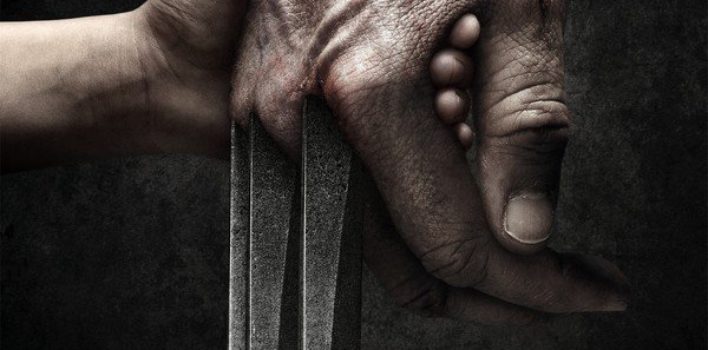
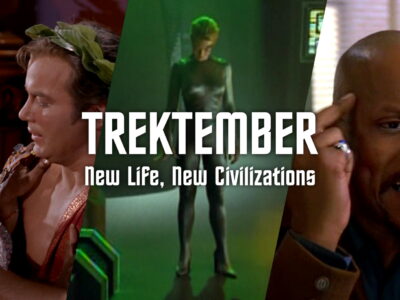
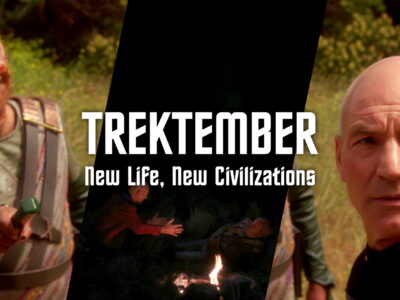
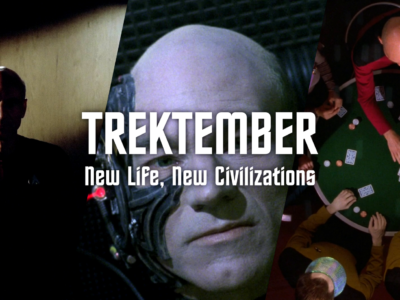


Pingback: #128 – Logan and an Incomplete Hope | Reel World Theology